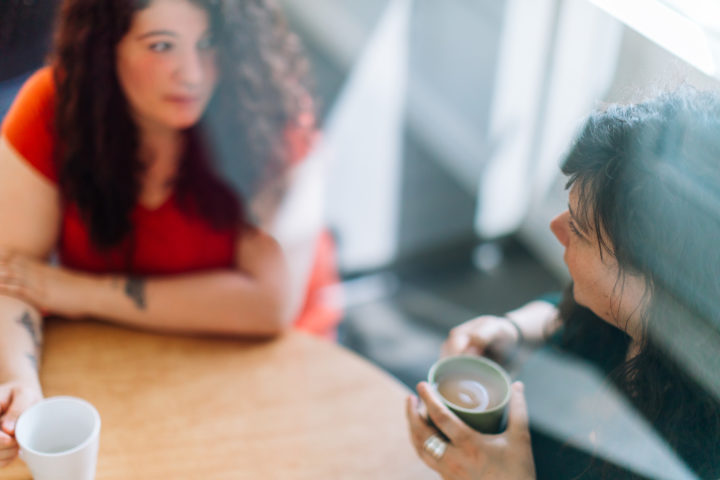Just last week, Girlguiding, a UK non-profit organization, released their annual study on girls’ self-image and well-being.
The organization, which seeks to use “fun, friendship, challenge and adventure [to] empower girls to find their voice, [inspire] them to discover the best in themselves and to make a positive difference in their community,” hosts groundbreaking programming for girls of all ages across the United Kingdom. In addition to the opportunities they afford girls to be adventurers, athletes, artists, and leaders, they also conduct important research on girls’ physical and mental needs.
Since 2009, Girlguiding has annually conducted their powerful Girls’ Attitudes Survey, disseminating their findings and using them to guide much of their innovative, resilience-building work with young girls. This year’s survey, which was released in the midst of a whirlwind week with regards to young women, their bodies, and self-esteem, is, at first, a bit of a disheartening read.
The study is comprised of the opinions of over 1,600 girls (not all of whom participate in Girlguiding programming), and covers their feelings about harassment, the internet, safety, body image, and more. According to the organization’s website, this year’s girls report that they “feel held back by gender stereotypes, sexism, and anxiety about they look.”
Perhaps most deeply disturbing, though unsurprising, are the findings on girls’ feelings about their looks. The study found that it isn’t just the way girls feel about their bodies that stands in their way; girls also worry about what others think of their bodies and become anxious in anticipation of criticism or judgment they think they’re going to be subject to. The 2016 research showed that 47% of girls ages 11-21 feel “held back” by their appearance and by concern about their looks.
Girlguiding also found that girls begin to feel concerned about or ashamed of their bodies as young as first or second grade. When asked about what priorities they have for changes that need to be made in our world, more than half of the survey’s youngest participants (7-10 year olds) cited eradicating judgment over bodies and appearances.
The Survey’s respondents shed light on just how difficult it is to be a growing girl. 70% of girls feel like they encounter sexism “so widespread it affects most areas of their lives,” and almost 70% of girls reported feeling inadequate in some way. Though those findings feel bleak, the study is also encouraging. Despite noting the hardships of double standards and beauty ideals and harassment, the girls who were surveyed are strong, vocal change agents. They report working hard to fight sexism, to combat unfair treatment, and to carve out space for girls to feel confident and successful in any arena they choose.
The massive study is critically important on its own. It’s indicative of the state of things for contemporary young girls and reminds us that things we know and talk about, like the intense effects the media can have on women and their self-esteem, are real and problematic. Girlguiding, though, goes meaningfully beyond the survey. The organization enriches girls’ lives both by giving them platforms to speak about what they want to change in the world and by creating chances for them to combat sexism and build confidence.
Through programs like Think Resilient, created after they discovered girls feel bogged down by stress, Girlguiding answers the call to educate girls about mental health and self-care. By placing as much importance on learning stress management tools as they do on learning how to rock-climb, the organization equips young girls to become resilient and healthy women. When girls reported feeling unsafe online, Girlguiding launched a campaign to promote healthy internet use so that girls see the internet as a platform for expression and not a place to fear. Girls spoke up about body-image and Girlguiding created the “Free Being Me” badge and encouraged them to challenge the images they’re bombarded with by the media. Through the survey alone, and through their work to bring girls’ concerns before Parliament and other high-level authorities, Girlguiding amplifies girls voices and nurtures their activism and advocacy.
Though their findings are hard to digest and remind us of how much we still have left to tackle, their commitment to girls is enormous and their work is deeply inspiring. Through their survey, they’ve proven their dedication to going straight to the source so that they can ensure that their programs match the needs of girls each year.




comments